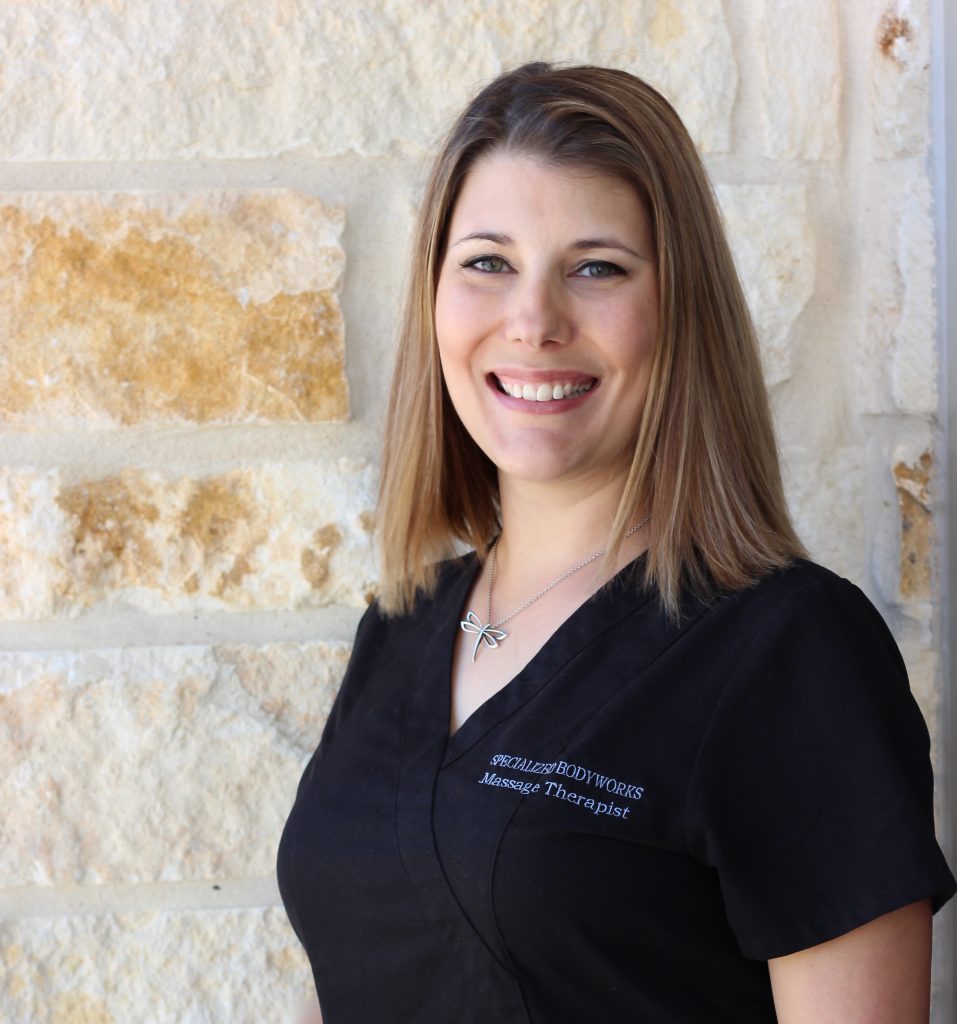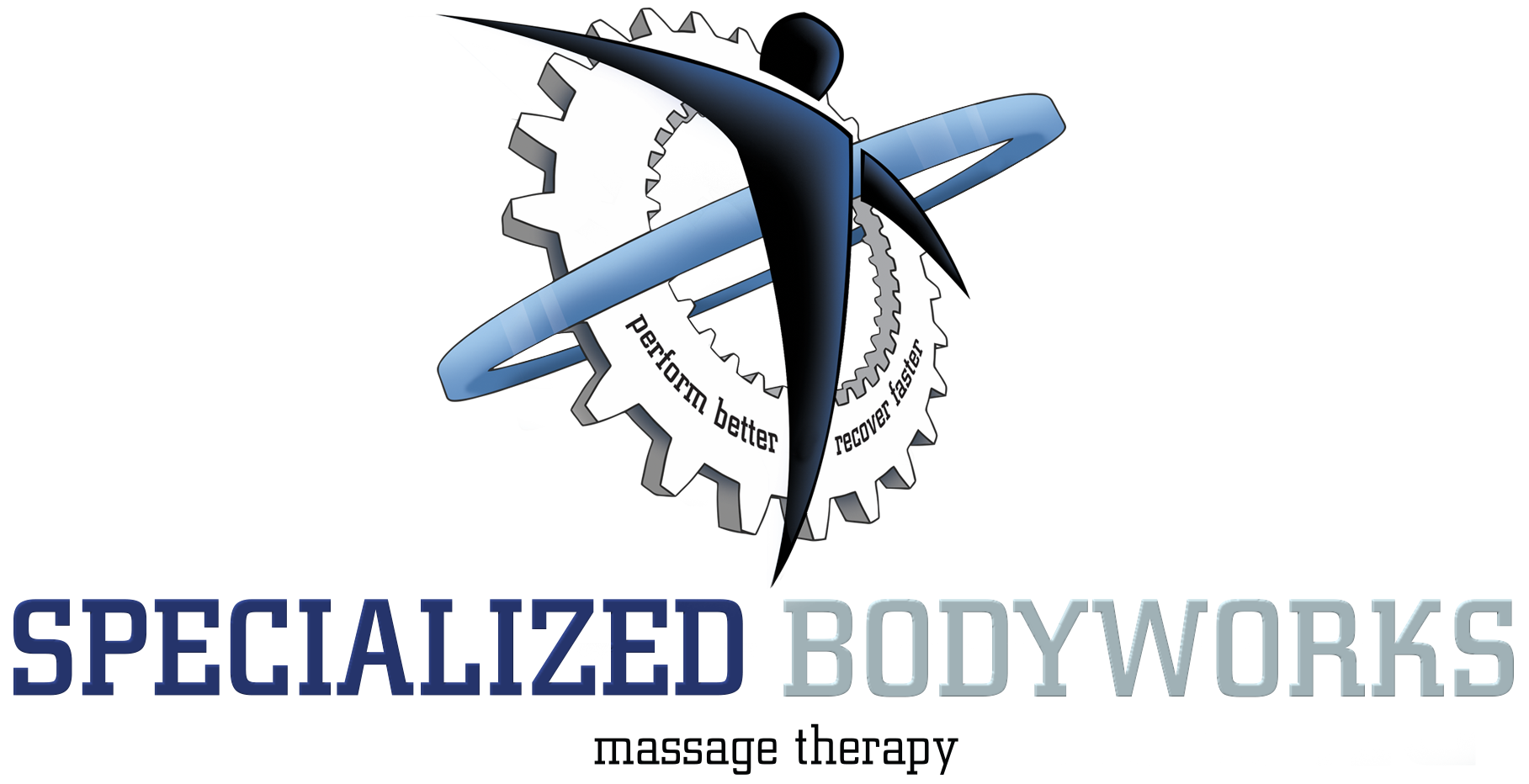Since 2013, Amanda Moyers, LMT026893 has been proudly serving The Woodlands community through massage therapy, operating out of SB Wellness Suites in Grogan's Mill.
When it comes to choosing a massage therapist, quality and integrity matter most. Amanda’s dedication to her craft and ethical approach to wellness ensure a superior level of care tailored to your needs. For Amanda, reducing pain and promoting relaxation isn’t just a job—it’s a passion. Her goal is to make every session the best hour of your day.
Discover the difference a personalized, compassionate massage session with Amanda can make at Specialized BodyWorks.
Located inside SB Wellness Suites – Grogan’s Ridge

Amanda has been a Massage Therapist since early 2000 with a primary focus on Sports Therapy. In the years following, she has expanded her practice to include Deep Tissue Therapy, Trigger Point Therapy, and Prenatal Massage. Amanda holds the belief that every client is unique, and her massage encompasses several different techniques in order to focus on the muscle group causing the strain and fatigue, therefore dissipating hypoxic points within the muscle and surrounding tissue, in order to relieve local and referred pain related to muscle tension.
Amanda earned her certification in Massage Therapy from the Texas School of Massage in January 2000. She also holds a B.S. in Healthcare Administration from the University of Houston, and is certified in the State of Texas to teach grades Kindergarten through Eight. She opened Specialized BodyWorks in 2013 with the dream to create a collaboration of professionals in alternative medicine that specialize in helping people live better and recover faster.
Services & Pricing
60 Minute Massage $95
Includes: Sports Massage, Deep Tissue, Prenatal Massage, Migraine/TMJ, Piriformis Syndrome, Youth Sports Massage, Aromatherapy, and Massage Cupping Modalities
90 Minute Massage $120
Includes: Sports Massage, Deep Tissue, Prenatal Massage, Migraine/TMJ, Piriformis Syndrome, Youth Sports Massage, Aromatherapy, and Massage Cupping Modalities
2 Hour Massage $190
Includes: Sports Massage, Deep Tissue, Prenatal Massage, Migraine/TMJ, Piriformis Syndrome, Youth Sports Massage, Aromatherapy, and Massage Cupping Modalities
So why do I do it?
People want to know why I chose Massage Therapy as a profession. This is usually the first question a new client asks me.
There is something about Massage Therapy. It’s got a certain luxurious caché. It’s a popular profession, yet there aren’t many of us. When people find out what I do for a living, they raise their eyebrow, smile, maybe laugh and point hopefully at their shoulders. I get offered discounts on things, like I’m some kind of good cause. Dogs like me.
Looking at it one way, massage therapy is the most obvious and natural healing method in the world: the power of human touch. At the same time, it seems foreign and exotic. After all, we live in a touch-deprived culture. Compared to a visit to your doctor, an appointment with your massage therapist is long and personal. What a strange line of work! People are curious.
The simple answer is, because I love it. I love it because it works, and because it moves me. When I get a good massage, I am a changed woman. I get off the table and float on a cloud for days. It wakes me up – and at the same time I sleep better. It’s like someone focused the world and made the colors brighter.
Really, I’m a massage therapist because I want to do that for other people. It’s my job to be the best hour in your day. But that’s just the tip of the iceberg. Massage therapy feels fabulous for a reason; it works! And, it is physiologically and psychologically potent.
Outside of work, I’m spending time with my husband and two daughters, cycling, rollerblading and leading an energetic troop of Daisy Girl Scouts. I like to contribute much of my athletic massage techniques to my husband who is forever pushing himself to the limits during his mountain bike races and outdoor adventures. I am also known to volunteer my time at marathons, athletic races, and other special events, in order to promote health and wellness whenever possible.
Choose the Therapist, Not the Therapy
“When you’re in pain, you want to know ‘what works,’ but what you should look for is an honest therapist of any kind.”
1,100 words, published 2006, updated 2010 by Paul Ingraham, Vancouver, Canada
Clients ask me all the time, “What works?” Does chiropractic work? Does ultrasound work? Does craniosacral therapy work? And, of course, they especially want to know if massage therapy works — even as we’re doing it! Good for them.
But it’s not the best question. It’s too broad. No matter what you might say in favour of a kind of therapy, or against it, the more important consideration will always be the quality of the individual practitioner: his or her intellectual honesty, social skills, emotional maturity, academic diligence, and so on. These personality traits are by far the most important variables that determine quality of care. Find a professional with those qualities, and it doesn’t really matter which letters they have behind their name, or what kind of therapy they are selling. Get stuck with a dishonest or socially incompetent professional, no matter what kind of professional they are, and all bets are off — you don’t want to pay them to do anything to you.
The most important consideration is the quality of the individual practitioner.
It’s a truism that not everyone can graduate top of his or her class. Although the nature of the therapy offered is not unimportant — some things aren’t going to work, no matter what — the skill and good sense of the therapist is much more important. A few ethical, intelligent practitioners of any helping profession will always deliver better care than the less responsible members of any profession.
The effectiveness or ineffectiveness of therapists bears little relationship to either the type or duration of their training.
Watkins, “The efficacy of treatment: therapy or therapist?” in Clinical Medicine

